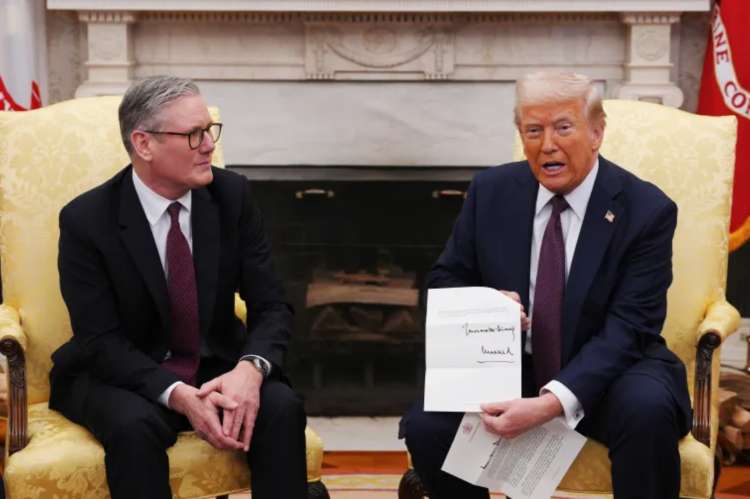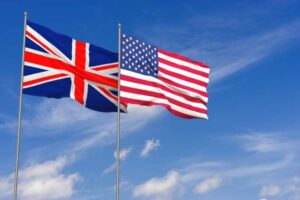
UK foreign policy at a crossroads: There are times when a country must stop and take stock. For the United Kingdom, this is one of those moments. As the United States turns increasingly inward — its foreign policy more erratic and its commitments less reliable — Britain faces a stark choice: continue to hold out hope for a fraying “special relationship,” or look closer to home and rebuild stronger, more practical ties with Europe.
Once held up as a pillar of UK foreign policy, the transatlantic bond with the United States now appears strained, if not altogether hollow. What was once seen as mutual respect and strategic alignment is beginning to look more like a one-sided dependency. The Trump years made that imbalance hard to ignore, but in truth, the cracks have been visible for far longer.
READ I Trump’s Neanderthal realism faces its breaking point
A long history of asymmetry
Looking back, it is difficult to avoid the conclusion that Britain has often paid a high price for its closeness to Washington. From the Suez Crisis to the Iraq War, from economic pressure to foreign entanglements, the UK has frequently found itself navigating the fallout of American decisions made with little regard for allies. The post-war order may have been built together, but it was clearly tilted in favour of one partner.
Even the Marshall Plan — often cited as a generous American gesture — was as much about containing communism and creating markets for US goods as it was about rebuilding Europe. Washington’s military footprint in Europe, portrayed as a protective shield, has always served American strategic interests first.

Against this backdrop, the notion of American altruism begins to fade. The Trump administration’s open disdain for NATO, its embrace of transactional diplomacy, and its curious admiration for authoritarian leaders have only reinforced the perception that alliances, from Washington’s perspective, are less about values and more about leverage.
When President Trump publicly chastised Ukraine’s President Zelensky, or when senior US officials referred to the UK as “random” and to Europe as “pathetic,” it wasn’t just a matter of diplomatic discourtesy. It was a signal—intended or not—that America’s priorities have shifted. The post-1945 model, where the US led and Europe followed, is no longer viable.
Post-Brexit Britain finds itself in an especially awkward position. Outside the EU and still heavily reliant on American military and economic systems, the UK faces the risk of marginalisation. While its loyalty to the US remains largely intact, the returns on that loyalty have grown uncertain.
Europe steps up
In contrast, Europe has begun to adjust. Germany has suspended its self-imposed debt limits to enable large-scale investment in defence. France has indicated a willingness to extend its nuclear umbrella to fellow European nations. Even neutral countries like Ireland are reconsidering long-standing policies in light of growing security threats.
This isn’t just about Russia’s war in Ukraine. It is also a response to Washington’s unpredictability. European governments increasingly realise that relying on American military power is no longer a long-term solution. Many are investing in their own capabilities—not out of defiance, but out of necessity.
While unity across the continent remains uneven, the shift in mindset is clear: Europe can no longer afford to assume that the US will always show up when it counts.
UK foreign policy at a crossroads
Britain has a decision to make. It can watch from the sidelines as Europe redefines its strategic future—or it can take an active role in shaping that future. Re-engaging with Europe need not mean undoing Brexit. Practical cooperation—on defence, intelligence, energy, and cyber security—is well within reach.
Historical ties, geographic proximity, and shared democratic values all point to a natural convergence. Britain’s involvement could lend credibility and capability to Europe’s push for greater strategic autonomy. More importantly, it would provide the UK with a stronger foundation for navigating a world where US leadership is no longer guaranteed.
The idea of a “special relationship” has long been wrapped in sentimental narratives of shared history and wartime solidarity. But UK foreign policy cannot be guided by nostalgia. In a world marked by shifting power dynamics and growing uncertainty, Britain needs partnerships rooted in mutual interest and strategic balance—not just warm words and old photographs.
Greater integration with Europe would not diminish the UK’s global standing—it would enhance it. A stronger, more self-reliant Europe is not a threat to the transatlantic alliance; it is a safeguard against its decline.
The choices for the UK foreign policy are not about abandoning old allies, but about adapting to changed realities. Clinging to an increasingly one-sided partnership with a distracted America is not a strategy—it is a risk. By looking to Europe, Britain can reclaim agency in its foreign policy, contribute meaningfully to collective security, and ensure that it is not left exposed in an increasingly unstable world.
The future may still be uncertain, but the direction is clear. It is time for Britain to step forward—not back.
